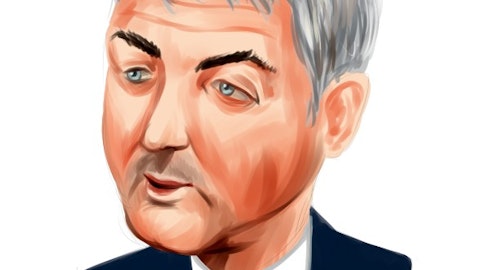Activist investor Nelson Peltz‘s Trian Partners recently acquired some 13.0 million shares of Pentair plc. Ordinary Share (NYSE:PNR), according to a 13D filing with the Securities and Exchange Commission. The stake comprises 7.24% of the company’s outstanding stock and represents a new position for the famed activist investor. It was also disclosed that Peltz has been in talks with Randall Hogan, the Chairman and Chief Executive of the $11.58 billion maker of pumps and valves used in a wide range of industries. Contrary to the usual practice of waving a sell-off banner at the loss-making businesses of the targeted companies, Pentair plc. Ordinary Share (PNR) is being asked by Peltz to consolidate the fragmented industry and make acquisitions. Hogan is on board with Peltz when it comes to this strategy, and his company has about $800 million in cash to spend on such ventures. The company’s last major acquisition was that of Tyco International in 2012 and Pentair still hasn’t been able to meet the earnings goals that it set out to achieve from that deal, even though cost savings have exceeded expectations. So far this year Pentair plc. Ordinary Share (PNR)’s stock has appreciated by about 1.72%, and is trading about 6.24% lower than its 52-week high.

Up until now, hedge funds didn’t have a particularly bullish outlook on Pentair plc. Ordinary Share (PNR), with interest in the company declining sharply in the first quarter. Among the funds that we track, a total of 18 firms had an aggregate investment of $701.26 million in the company at the end of March, compared with 25 funds with $974.06 million in shares held at the end of the previous quarter.
Following activist funds like Trian Partners is important because it is a very specific and focused strategy in which the investor doesn’t have to wait for catalysts to realize gains in the holding. A fund like Peltz’s can simply create its own catalysts by pushing for them through negotiations with the company’s management and directors. In recent years, the average returns of activists’ hedge funds has been much higher than the returns of an average hedge fund. Furthermore, we believe do-it-yourself investors have an advantage over activist hedge fund investors because they don’t have to pay 2% of their assets and 20% of their gains every year to compensate hedge fund managers. We have found through extensive research that the top small-cap picks of hedge funds are also capable of generating high returns and built a system around this premise. In the 34 months since our small-cap strategy was launched it has returned over 145% and beaten the S&P 500 ETF (SPY) by more than 85 percentage points (read more details). Soon, we’ll be releasing a new quarterly newsletter written by former activist hedge fund analyst Michael Bland that tracks ten or so activist campaigns at any given time.
Follow Nelson Peltz's Trian Partners
Let’s have a look at the insider trading at Pentair plc. Ordinary Share (PNR) to gauge how the management views the company’s prospects. Although there haven’t been any insider purchases lately, some notable insider sales have occured, including that of Director David Jones, who sold about 20,000 shares in February this year, and President Alok Maskara, who disposed off some 9,000 shares earlier this year. However, investors should bear in mind that insider selling is a much weaker signal of a company’s prospects than insider buying.
Let’s move on to taking a look at how other top hedge funds have been trading Pentair plc. Ordinary Share (PNR) of late.




